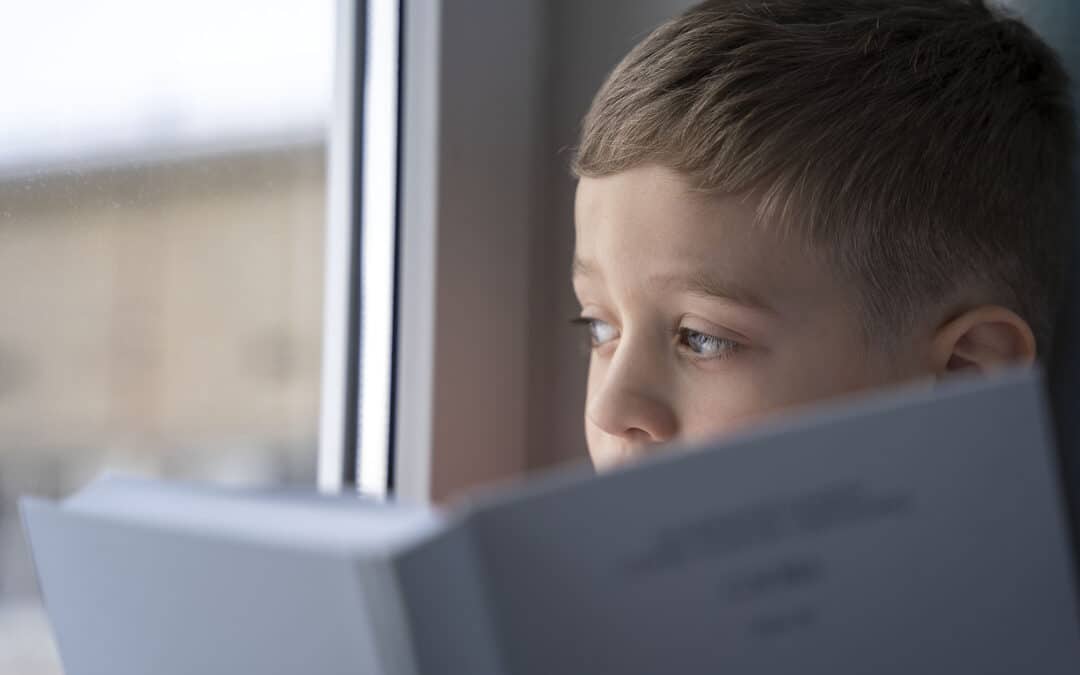In this series of blogs, I will be looking at how dyslexia affects children of different ages. This particular blog will focus on the signs of dyslexia in a 5 year old. Click here to discover the best books for a 5 yeard old with dyslexia.
What is Dyslexia?
Dyslexia is a common learning difficulty that affects as many as 1 in 5 children throughout the world. It does not discriminate and can affect anyone However, your child is more likely to be dyslexic if either parent is.
Children with dyslexia will struggle with reading, writing and spelling however there are many different aspects of life that are actually affected. Click here to read about the most uncommon signs that your child may be dyslexic.
Dyslexia has nothing to do with intelligence. It’s a neurodevelopmental condition that can have a significant impact on a child’s academic performance and self-esteem. While dyslexia can affect people of all ages, it is often diagnosed in childhood. That’s why it’s so important to be aware of the signs in children. The earlier it is diagnosed, the quicker your child can receive the support they need.
Read on to discover the signs of dyslexia in a 5 year old:
- Difficulty with Phonological Awareness: One of the most common signs of dyslexia. This refers to the ability to identify and manipulate the sounds of language. For example, a child with dyslexia may have difficulty identifying the sounds in a word or rhyming words. Signs to look out for include the inability to memorise simple nursery rhymes.
- Difficulty with Letter Recognition: Dyslexic children may struggle to learn the alphabet, and may have difficulty differentiating between similar looking letters such as b and d.
- Difficulty with Sight Words: Children with dyslexia may struggle to recognize and remember sight words such as “the,” “and,” and “of.”
- Slow Reading Speed: Children with dyslexia may also have difficulty with comprehension, as they may spend so much time decoding words that they are unable to understand the meaning of the text.
- Difficulty with Spelling: They may have difficulty remembering the spelling of common words and may make frequent spelling errors.
- Difficulty with Handwriting: They may struggle to form letters correctly and may have poor handwriting overall.
- Difficulty with Sequencing: Sequencing refers to the ability to put events, ideas, or objects in a logical order. Children with dyslexia may struggle with sequencing, which can make it difficult for them to understand stories or follow instructions.
- Difficulty paying attention. This will make it difficult for them to sit still and listen to stories. While they will love stories, they may show no interest in the words on the page.
- Difficulty with Memory: Dyslexic children may have difficulty with short-term memory, which can make it hard for them to remember instructions or important information.
- Dislike learning by rote. This is in part due to their short-term memory issues. Tasks such as times tables will be particularly difficult for young children with dyslexia.
- Avoiding Reading and Writing: Children with dyslexia may find reading and writing tasks frustrating or anxiety-inducing. They may also be self-conscious about their abilities, which can lead to feelings of shame or embarrassment.
- Difficulty with Speech: Some dyslexic children may struggle to articulate their thoughts or have a delay in speech development. While not all dyslexic children will have speech difficulties, it is a potential sign to look out for.
Important to remember….
It is important to note that not all children with dyslexia will display all of these signs, and some children without dyslexia may display some of these signs as well. However, if you notice several of these signs of dyslexia in a 5 year old, whether they are your child or one you are teaching, it may be worth consulting with a educational phycologist or learning support specialist to discuss the possibility of dyslexia.
If your child is diagnosed with dyslexia, there are several interventions that can be helpful. These may include specialized reading programs, speech therapy, occupational therapy, and accommodations in the classroom such as extra time on tests or the use of assistive technology. This blog looks in depth at all issues surrounding dyslexia in children and I highly recommend spending time to read all of the articles featured here. Information is key. In order to help your child, you have to be aware how to!
It is also important to provide your child with emotional support and encouragement. Children with dyslexia may struggle with self-esteem issues and may feel frustrated or discouraged by their academic difficulties. By providing a supportive and positive environment, you can help your child build their confidence and develop the skills they need to succeed.
What can you do?
If you have a 5 year old who you suspect is dyslexic or perhaps has just been diagnosed, you will no doubt feel overwhelmed. the endless information online can be confusing, scary and if I’m honest, at times, inaccurate. My aim is to bring it all together and offer parents and educators a one stop shop for everything dyslexia!
Finally, it’s so very important to remember that dyslexia is not all bad. So many children with dyslexia have some pretty exceptional skills and a totally unique look on life. My blog on dyslexia strengths really is a must-read!
If you have any concerns, worries or questions, you can contact me at any time. I love to hear from you all and hope I can be of some help and support!


Recent Comments